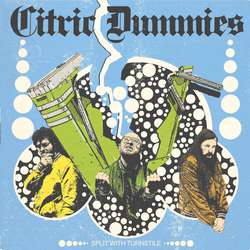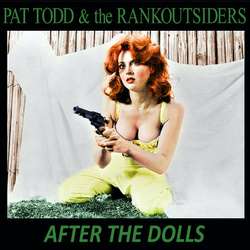The largest requirement of a piece of music, especially from a genre like hardcore, is the intention of creating something completely new: a blending of influences with one's own contributions to create something that's never been heard before. In turn, the biggest requirement of a band is progression: a maturation in both concept and sound and a willingness to experiment with new ideas. This mindset can be detrimental to the essence of bands like Counterparts, mostly in spinning up critical resistance to a new generation of music fans discovering the passion of a genre like hardcore. Melodic hardcore music has seen somewhat of a rebirth recently, a piqued interest caused by the "Wave" bands, derogatorily defined "trendycore" or "melocore" bands, and even the reunion or revitalization of stalwarts within the genre. But these sounds can be inherently stagnant, the genre itself having a penchant for formulaic bands that refuse to experiment with new sounds.
Counterparts are a talented and passionate young band, having released a pair of noteworthy records, both backed by a rigorous touring schedule and an energetic live performance. The Difference Between Hell and Home is packed with complex rhythms, intricately heavy guitars, and forceful vocals. Standout track "Compass" harks to the bands namesake; cyclic guitars and a driving hardcore drum beat lead into a soaring chorus that contrasts the interplay between Brendan Murphy's growls and some of the few cleans found on the record. Many of these songs were tailor-made for the pit, providing the necessary mix of rhythm and ferociousness, with odd time changes and interesting guitar offering reprieve from the onslaught of breakdowns.
At its core, music is influence, and Counterparts wear theirs staunchly on their sleeves. Unfortunately, The Difference Between Hell and Home fails in overcoming its influence and exceeding the sum of its parts. For every memorable verse there's an exceedingly cheesy breakdown ("I am what I am / I am an outcast!") "Decay" is the requisite mid-album spoken word track with reverberant vocals atop dissonant guitars - you've heard it already, even if you haven't listened yet. Sadly, these moments could be forgiven, certainly diluted, if the band were to show a significant desire to progress, any sort of departure from the tried-and-true genre cliches. Because of this, The Difference Between Hell and Home is a confident album that winds up sounding stagnant and formulaic, further exacerbating the bands lack of singularity in an increasingly vapid genre.
Recommended if you like: Misery Signals, Shai Hulud, Defeater






